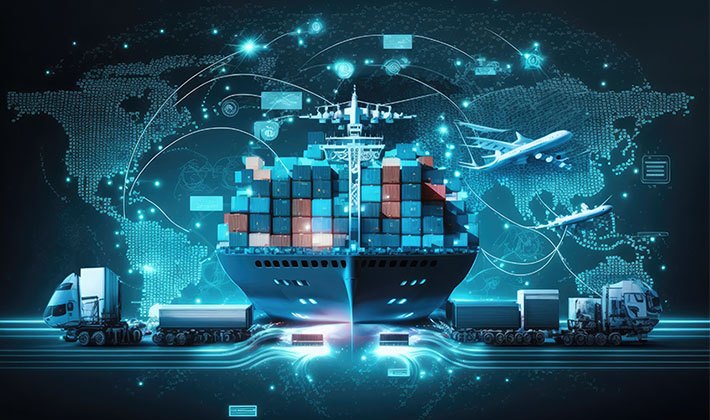
Freight procurement is undergoing a significant transformation. As global supply chains become more complex, traditional methods of procuring and negotiating shipping rates are giving way to digital solutions that offer increased efficiency, transparency, and flexibility. Automation, artificial intelligence (AI), and cloud-based platforms are at the forefront of this revolution, driving businesses toward a future where freight procurement is faster, more accurate, and more cost-effective.
Automation: Streamlining the Freight Procurement Process
One of the key ways digital transformation is impacting freight procurement is through automation. Traditionally, freight procurement involved a labor-intensive process, including manually gathering quotes, negotiating rates with carriers, and managing contracts. This process often resulted in inefficiencies, delays, and higher costs due to the time it took to evaluate carrier options and negotiate terms.
Automation is changing this by digitizing and streamlining many of these tasks. Freight procurement platforms now allow businesses to automatically solicit and compare quotes from multiple carriers in real-time, reducing the need for manual back-and-forth communication.
These systems can automatically generate contracts, process approvals, and even track compliance with service-level agreements. The result is a faster, more efficient procurement process that frees up logistics teams to focus on strategic decision-making rather than administrative tasks.
Additionally, automation can help optimize carrier selection by analyzing historical data on carrier performance, including delivery times, costs, and service reliability. This allows businesses to make data-driven decisions, selecting the best carriers for their needs based on past performance rather than relying on manual research or assumptions.
Enhancing Negotiation and Decision-Making in Freight Procurement
Artificial intelligence (AI) is another game-changer in freight procurement, bringing sophisticated analytics and machine learning into the decision-making process. AI-powered platforms can analyze vast amounts of data, including market trends, carrier capacity, and fuel prices, to predict future shipping costs and recommend optimal times to procure freight services.
This gives businesses a competitive advantage by enabling them to negotiate more effectively and secure better rates. AI can also improve negotiations by providing insights into a carrier’s historical pricing behavior.
For example, AI tools can predict when carriers are likely to offer discounts or identify patterns in pricing fluctuations based on seasonality or market demand. Armed with this information, businesses can time their negotiations to take advantage of favorable conditions, ultimately reducing their shipping costs.
Moreover, AI can automate repetitive tasks, such as comparing contract terms across multiple carriers or analyzing fuel surcharges, saving logistics teams significant time. By providing intelligent recommendations, AI reduces the guesswork involved in freight procurement and helps businesses make more informed, data-driven decisions.
Cloud-Based Platforms: Enabling Real-Time Collaboration
As freight procurement shifts into the digital realm, cloud-based platforms are playing a central role in connecting shippers, carriers, and logistics service providers. These platforms offer real-time visibility into the entire procurement process, allowing all stakeholders to collaborate seamlessly from anywhere in the world.
One of the key benefits of cloud-based procurement platforms is their ability to centralize data. Instead of relying on email chains, spreadsheets, or paper-based records, businesses can manage all procurement activities – quotes, contracts, carrier performance data, and invoices – in a single, easily accessible platform. This centralization improves transparency, reduces the risk of miscommunication, and allows teams to respond quickly to changes in shipping needs or market conditions.
Additionally, cloud-based platforms provide access to advanced reporting and analytics tools. Shippers can track key performance indicators (KPIs) such as freight spend, carrier compliance, and on-time delivery rates in real time, helping them identify areas for improvement. With all data stored in the cloud, procurement teams can also conduct more thorough post-procurement reviews, enabling continuous improvement in future negotiations and carrier selection.
Cloud platforms also facilitate collaboration between shippers and carriers, enabling real-time communication about shipment status, changes in delivery schedules, or potential disruptions. This connectivity ensures that all parties are aligned and can adapt quickly to any challenges that arise, reducing the risk of delays and enhancing overall supply chain resilience.
The Future of Freight Procurement: What to Expect?
As the digital transformation of freight procurement continues, businesses can expect even greater levels of efficiency and innovation. In the coming years, we’ll likely see further advancements in AI and automation, with platforms becoming even more predictive and capable of anticipating supply chain disruptions before they happen.
Additionally, blockchain technology could play a role in increasing the transparency and security of freight procurement processes, offering an immutable ledger of transactions that ensures accountability and trust between shippers and carriers. This could further streamline the procurement process, reducing the need for intermediaries and lowering transaction costs.
The use of predictive analytics will also grow, allowing businesses to anticipate fluctuations in demand, fuel costs, and carrier capacity with greater accuracy. As these technologies evolve, companies that embrace digital freight procurement will be better positioned to navigate the complexities of the modern supply chain, driving down costs and improving operational efficiency.
Conclusion
The future of freight procurement is undoubtedly digital, and businesses that leverage automation, AI, and cloud-based platforms will have a significant competitive advantage. These technologies are revolutionizing the way companies procure and negotiate shipping rates, offering unprecedented speed, transparency, and control over logistics operations.
By embracing the digital transformation of freight procurement, businesses can optimize their supply chains, reduce costs, and stay ahead in an increasingly complex global marketplace. As logistics technology continues to evolve, forward-thinking companies will continue to explore new ways to enhance freight procurement, ensuring that they remain agile and responsive in the face of ever-changing market conditions.